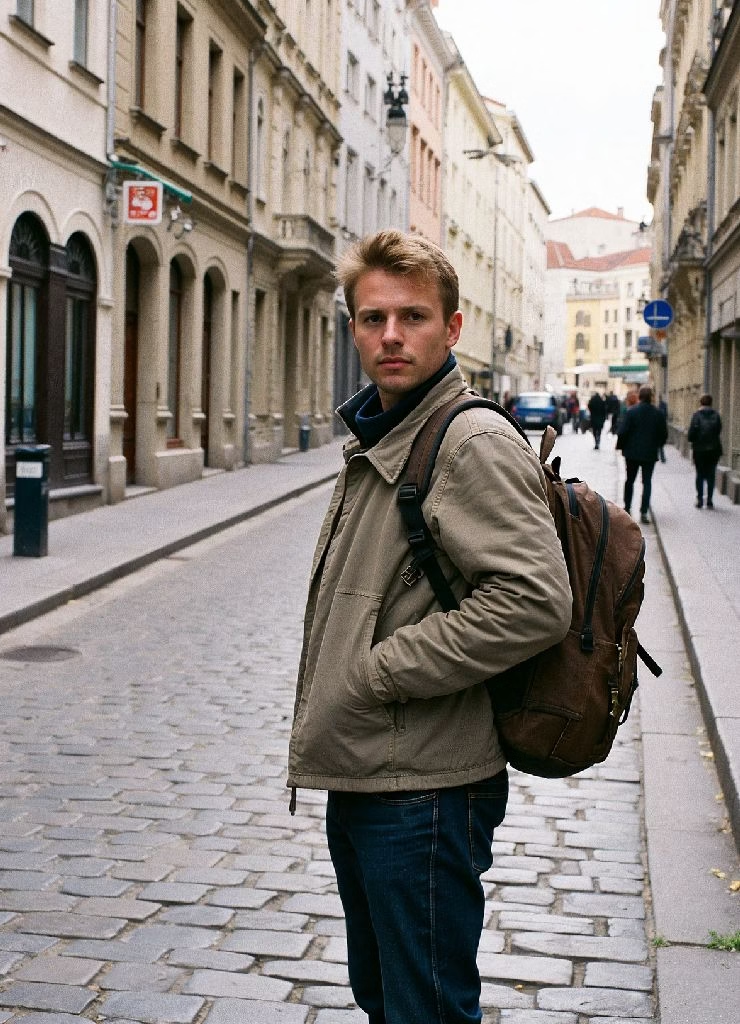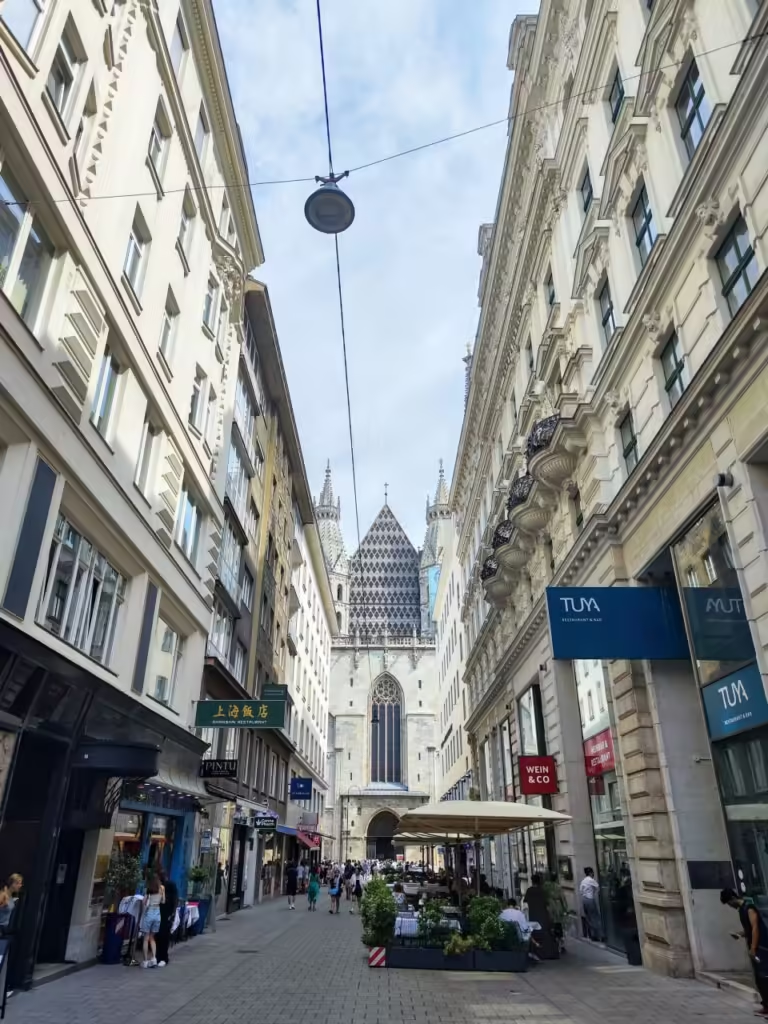Vienna is a city that beautifully blends historic charm with modern sophistication, making it an attractive destination for expats and locals alike. Its reputation as one of the most livable cities in the world draws in thousands of people annually, from international students to professionals and families seeking a high quality of life.
However, finding suitable housing in Vienna can be a challenge, especially for those unfamiliar with the local rental market. This comprehensive guide will cover essential information on navigating the rental process in Vienna, focusing on rental market trends, the best neighborhoods for expats, how to use real estate agencies and platforms, and tips for dealing with landlords and rental contracts.
Rental Market Overview
Vienna’s rental market is known for being well-regulated, relatively affordable compared to other major European cities, and diverse in terms of housing types and styles. Whether you’re looking for a modern apartment in a sleek high-rise or a charming flat in a centuries-old building, Vienna offers a wide range of housing options to suit different needs and budgets. However, competition for rentals can be stiff, particularly in highly sought-after areas close to the city center.
Rental Prices
Rental prices in Vienna are influenced by several factors, including location, property size, and whether the building is new or older. On average, you can expect to pay the following:
- Studio Apartments (30–50 m²): €600–€900 per month
- 1-Bedroom Apartments (50–70 m²): €800–€1,200 per month
- 2-Bedroom Apartments (70–90 m²): €1,200–€1,800 per month
- 3-Bedroom Apartments (90–120 m²): €1,800–€2,500 per month
These prices can vary significantly depending on the district, proximity to public transportation, and amenities such as balconies, parking, or elevator access. The first district, or Innere Stadt, tends to be the most expensive, while outer districts such as Simmering or Favoriten are more affordable.
Types of Rental Contracts
In Vienna, there are two main types of rental contracts: Mietvertrag (long-term lease) and Zwischenmiete (short-term sublease). Long-term contracts are typically signed for three years or longer, while short-term contracts are for less than six months, often for temporary stays or student housing. A standard rental contract usually includes:
- Rent (Miete): The monthly payment for living in the apartment.
- Operating costs (Betriebskosten): Additional costs for building maintenance, water, garbage disposal, and common area cleaning.
- Utilities (Nebenkosten): Costs for heating, electricity, and gas, usually paid separately from the rent.
It’s important to clarify which costs are included in your rent before signing a contract. Often, utilities are not included in the quoted rent price, so these additional expenses can add up.
Best Neighborhoods for Expats
Vienna is divided into 23 districts (Bezirke), each offering a unique atmosphere, amenities, and lifestyle. Some districts are better suited for expats due to their proximity to international schools, vibrant social scenes, or easy access to public transportation. Here’s a breakdown of some of the best neighborhoods for expats:
1. Innere Stadt (1st District)
- Description: As the historic heart of Vienna, the Innere Stadt is home to iconic landmarks like St. Stephen’s Cathedral, the Hofburg Palace, and many world-class museums. The architecture is stunning, and the streets are lined with luxury shops, elegant cafés, and high-end restaurants.
- Who Should Live Here: Professionals or families with a larger budget who want to be in the center of the action.
- Pros: Unparalleled location, historic charm, and easy access to cultural attractions.
- Cons: High rental prices and a more tourist-heavy area.
2. Leopoldstadt (2nd District)
- Description: Leopoldstadt is a rapidly gentrifying district located just across the Danube Canal from the city center. Known for the large green space of Prater Park and its proximity to the Danube River, it’s popular among families and expats who enjoy outdoor activities.
- Who Should Live Here: Families or individuals looking for a quieter, nature-filled neighborhood with easy access to the city.
- Pros: Great for families, more affordable than the 1st District, access to parks and the river.
- Cons: Slightly farther from the nightlife and cultural hubs.
3. Landstraße (3rd District)
- Description: This district is home to the famous Belvedere Palace and has a strong diplomatic presence, with many embassies located here. It offers a mix of historic and modern buildings and has excellent public transportation connections.
- Who Should Live Here: Expats working in international organizations or embassies, or those who prefer a quiet, yet central location.
- Pros: Close to the city center, good transportation links, and a mix of residential and diplomatic areas.
- Cons: Prices can be higher in certain parts of the district.
4. Neubau (7th District)
- Description: Known as Vienna’s hip and creative district, Neubau is filled with trendy cafés, boutiques, art galleries, and a young international community. It’s a cultural hub, with the MuseumsQuartier and various theaters located nearby.
- Who Should Live Here: Young professionals, artists, and creatives looking for a vibrant, artsy atmosphere.
- Pros: Lively atmosphere, great nightlife, and artistic scene.
- Cons: Can be noisy, and rental prices are rising due to its popularity.
5. Hietzing (13th District)
- Description: Hietzing is known for its luxurious villas, proximity to Schönbrunn Palace, and green spaces. It’s a more residential area, making it perfect for families seeking peace and quiet.
- Who Should Live Here: Families or retirees looking for a quiet, suburban feel with easy access to nature.
- Pros: Safe, quiet, with large green spaces and family-friendly amenities.
- Cons: Farther from the city center and more expensive.
6. Wieden (4th District)
- Description: Wieden is a trendy, central neighborhood with a mix of students, professionals, and expats. The area is known for its great dining options and cultural sites, including the Naschmarkt, Vienna’s largest outdoor market.
- Who Should Live Here: Young professionals, students, and expats who want a central yet trendy area.
- Pros: Close to the city center, vibrant food and market scene, and good public transport.
- Cons: Becoming increasingly expensive.
Navigating Real Estate Agencies and Platforms
Finding housing in Vienna can be made easier through various online platforms and real estate agencies. Here’s how you can best navigate these resources:
1. Online Rental Platforms
Several online platforms specialize in rental properties across Vienna, allowing you to search for apartments, houses, or rooms based on your preferences. Some of the most popular platforms include:
- Willhaben.at: A widely used platform where you can find everything from furniture to housing. It’s one of the best places to find rental listings.
- ImmobilienScout24.at: Offers a large selection of rental properties, with advanced filters for location, price range, and amenities.
- ImmoWelt.at: Another major platform with listings for both long-term rentals and short-term stays.
Most of these platforms allow you to filter by price, district, number of rooms, and amenities. When using these sites, be prepared to act quickly on listings, as good apartments in desirable areas tend to go fast.
2. Real Estate Agencies
Real estate agents (Immobilienmakler) in Vienna can be helpful if you’re new to the city and need assistance navigating the rental process. Agents typically charge a fee equivalent to one or two months’ rent (plus 20% VAT) for their services, which is known as a Maklerprovision.
Some well-regarded real estate agencies in Vienna include:
- Engel & Völkers: A high-end agency specializing in luxury properties.
- Betterhomes: Offers a broad selection of properties across the city, including budget-friendly options.
- FindMyHome.at: Another user-friendly platform with a range of rental listings and a network of local agents.
When working with an agent, make sure to clarify their fees upfront and ensure they understand your specific needs in terms of budget, location, and property features.
3. Short-Term Rentals
If you need temporary accommodation while searching for a permanent place, short-term rental platforms like Airbnb or Booking.com offer numerous options across the city. Additionally, some serviced apartment providers cater specifically to expats, offering furnished flats with flexible leases.
Tips for Dealing with Landlords and Rental Contracts
Once you’ve found a potential apartment, the next step is negotiating with landlords and signing a rental contract. Here are some tips to ensure a smooth process:
1. Understand the Mietzins (Rent)
Make sure you know what is included in the quoted rent. In Vienna, the total monthly cost often consists of:
- Nettomiete: The base rent.
- Betriebskosten: Operating costs like building maintenance and garbage collection.
- Heizkosten: Heating costs, which may or may not be included in Betriebskosten.
Ask the landlord for a breakdown of these costs to avoid surprises later.
2. Deposit and Fees
Be prepared to pay a deposit, usually equivalent to 3 months’ rent. This is refunded at the end of your lease, provided there is no damage to the property. Additionally, if you used a real estate agent, you’ll need to pay their commission upon signing the lease.
3. Inspect the Property
Before signing the contract, carefully inspect the property for any existing damage or issues. Take photos of anything that seems problematic and ensure these are noted in the lease agreement.
4. Rent Increases
Austrian law allows for periodic rent increases based on inflation. Ensure your contract clearly states how and when these increases will be applied. This is particularly important for long-term leases.
5. Rental Contract Terms
Rental contracts in Vienna typically last for three years, with an option to renew. If you wish to terminate the lease early, you’ll need to provide a Kündigungsfrist (notice period), which is usually three months. Make sure to read the contract thoroughly to understand your obligations and rights as a tenant.
6. Meldezettel (Registration)
One of the most important administrative tasks after moving into a new apartment is registering your residence with the local authorities. You’ll need to complete a Meldezettel, which confirms your address. This is a legal requirement in Austria and must be done within three days of moving into your new home. Your landlord will need to sign this form.
7. Communicating with Landlords
Most landlords in Vienna prefer communication in German, so it’s a good idea to brush up on your basic German skills or have a translator if necessary. Being polite and clear in your communications can go a long way in ensuring a positive landlord-tenant relationship.
Conclusion
Finding housing in Vienna requires understanding the local rental market, identifying the best neighborhoods for your lifestyle, and successfully navigating real estate platforms or agencies. Whether you’re looking for a vibrant, cultural hub or a peaceful, family-friendly area, Vienna’s districts offer something for everyone. By following these tips and ensuring you fully understand the rental process and your contract, you can avoid common pitfalls and enjoy your new life in one of Europe’s most beautiful cities.

Hello, I am Jan, a travel writer based in the Czech Republic. I specialize in discovering and writing about my homeland—medieval towns, mountain hikes, the local pub scene, and off-the-tourist-radar destinations.
I also write about life as an expat in Czechia—just what it is like to live here, and not just visit. That means the little victories, the cultural surprises, and the daily realities of establishing life in this side of the world. I have also spent some time in Vienna (Austria), and I wrote several useful articles for expats there.

